In the spotlight: The 2024 Crypto Consumer Report
Understanding the mindset of the crypto consumer is paramount for web3 builders, or at the very least, should be. Yet, unraveling these nuances remains an ongoing challenge.
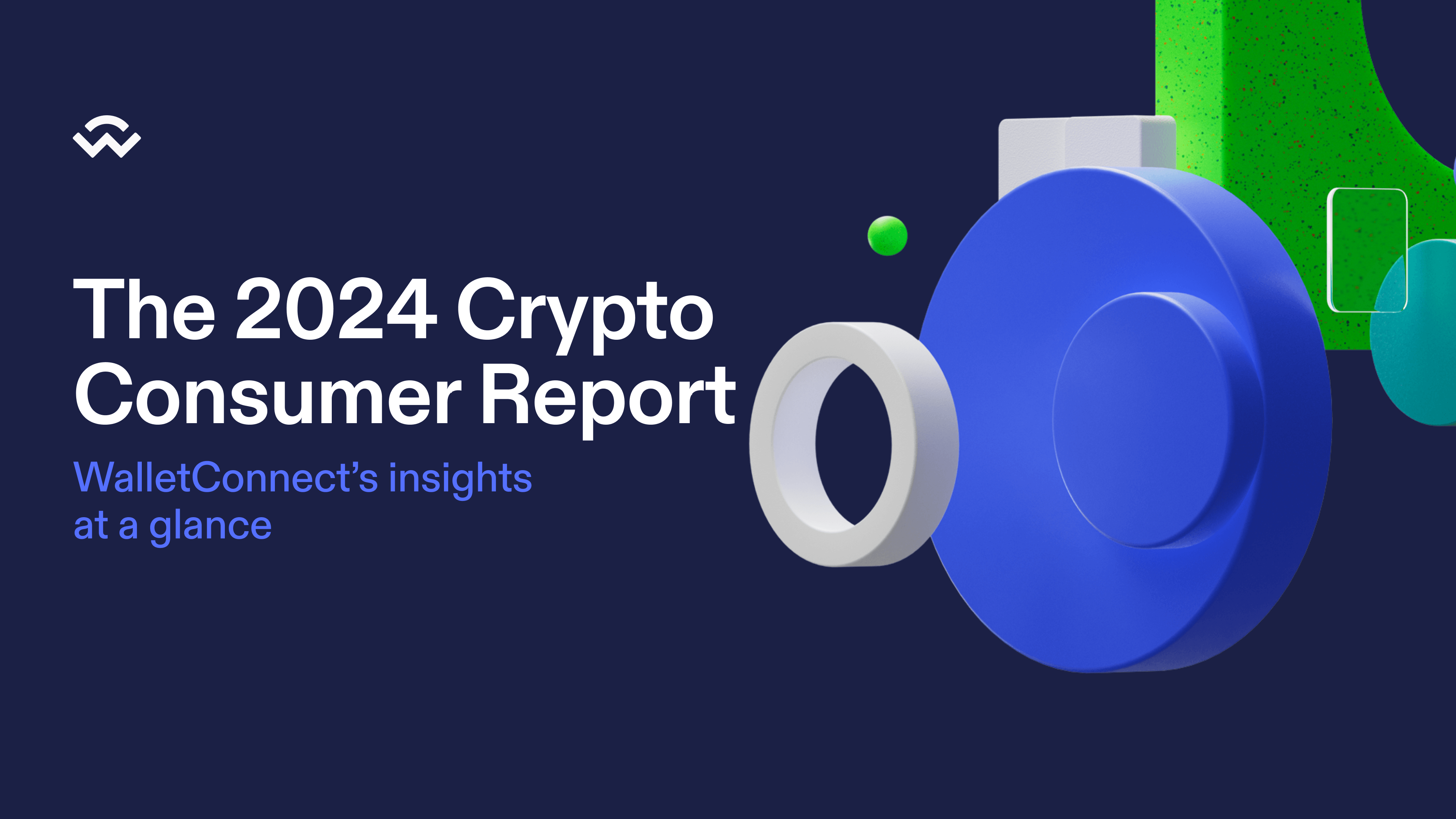
In collaboration with YouGov, we recently launched the WalletConnect Pulse, to unveil new insights into the attitudes, behaviors, and preferences of today's web3 consumer.https://walletconnect.com/pulse-2024-crypto-consumer-report
Surveying nearly 300 users, our data reveals a fascinating mosaic of crypto personas – from “Newbies” to “NFT Nerds,” these personas offer a more nuanced understanding of our diverse crypto community. A standout was the emergence of "Socialites," making up 10% of respondents, indicating a growing trend of users engaging with web3 social and community apps. Does this suggest a shift from traditional crypto activities to more community-driven experiences?
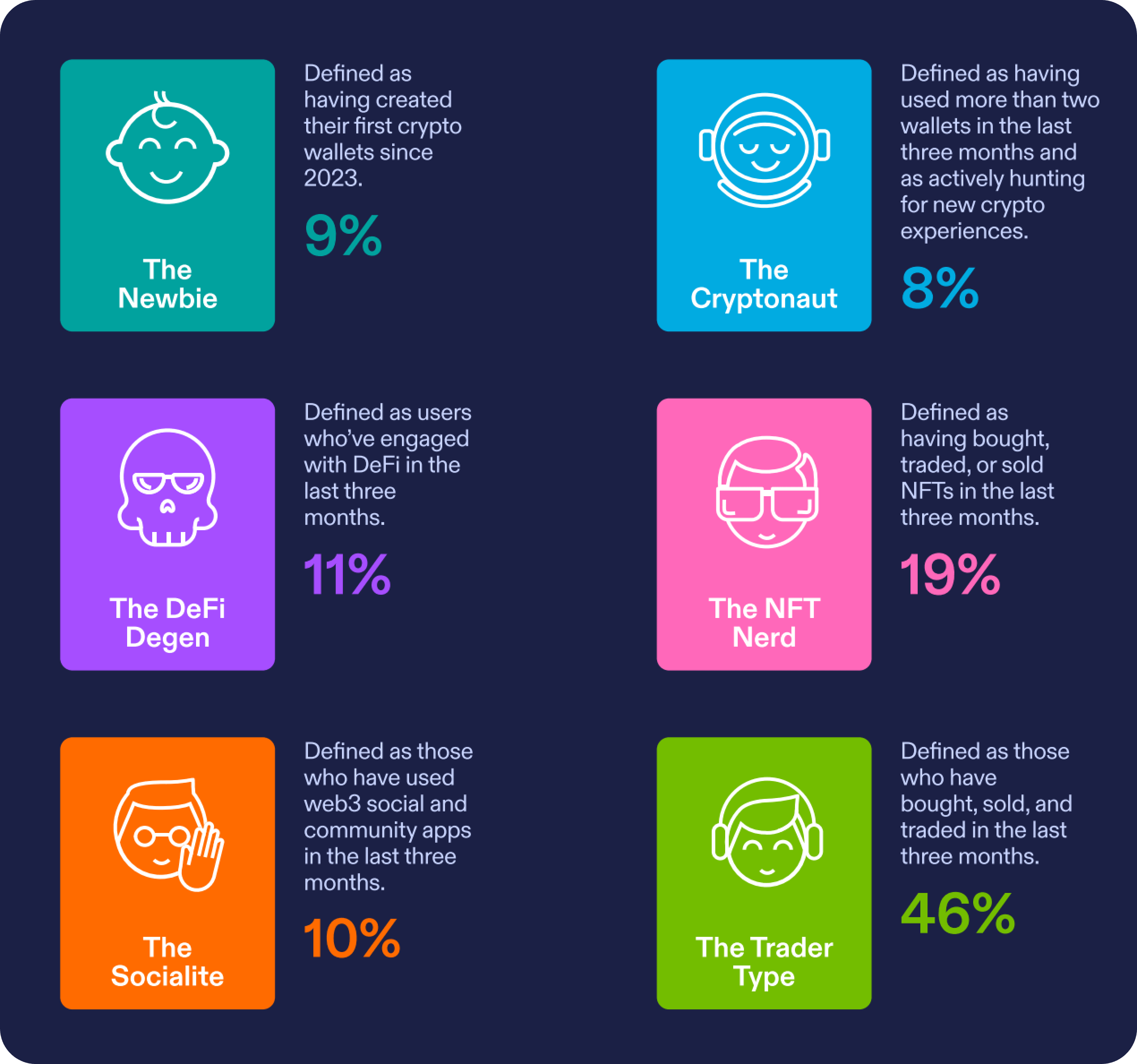
We also sought insights from industry experts to further solve the crypto consumer mystery. The report features opinions from web3 leaders – some highlighted here – covering everything from seed phrases to smart accounts, and self-custody to security. In the hopes that this data helps chart a more user-centric path forward for web3, below we highlight high-level findings from the report:
Wallets unchained
The cornerstone of crypto interaction lies in wallets, serving as the gateway for users to enter web3.
- The survey revealed that 59% prefer a single wallet, with more active users opting for multiple wallets for heightened security and access to more chains.
- When considering how to improve wallet satisfaction and increase usage, 51% of respondents unanimously indicated that user-friendliness is the top priority.
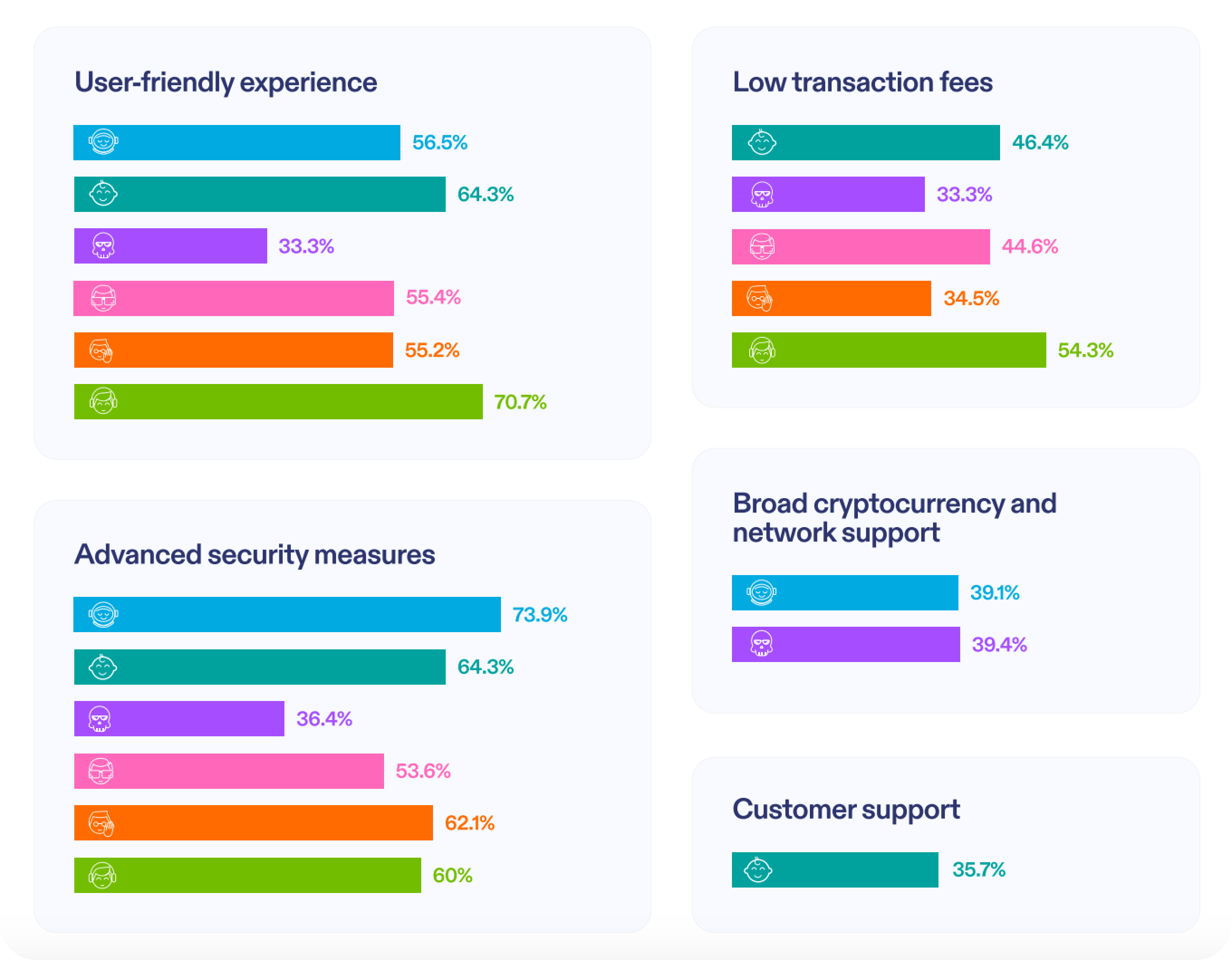
dYdX’s Nathan Cha's comments echo these findings when he argues the future success of crypto protocols lies in their ability to make the user experience seamless and chain-agnostic. The vision is for users to access assets across all chains with a single wallet. “The protocols that understand this deeply and abstract away all these complexities will be the ones to win in the long run."
Meanwhile, Safe’s Lukas Schor stresses the urgency of simplifying the transition to web3, emphasizing the significance of smart account-enabled Passkeys for user-friendly self-custody. Recognizing the familiarity of web2 UX, he also highlights social logins for wallets as a crucial strategy to enhance accessibility. “We will not unlock digital ownership for the masses with clunky hardware and complicated seed phrases, especially when users are accustomed to seamless entry with FaceID to access digital banking apps."
A dapp dive
Pivoting to dapps, the survey spotlights their integral role in user interaction and experiences:
- Over 50% of respondents are active explorers of the latest tech and dapps, while a substantial 34% express eagerness to learn more about web3 despite not being too familiar with its applications.
- For dapp creators, the insights get more intriguing with 40% expressing a willingness to embrace new features, and a noteworthy 16% say they actively seek out new web3 experiences.
- Top 3 crypto experiences consumers are looking for are NFTs, community and governance models, and Web3 social and messaging – with most active users choosing the latter as their top pick.
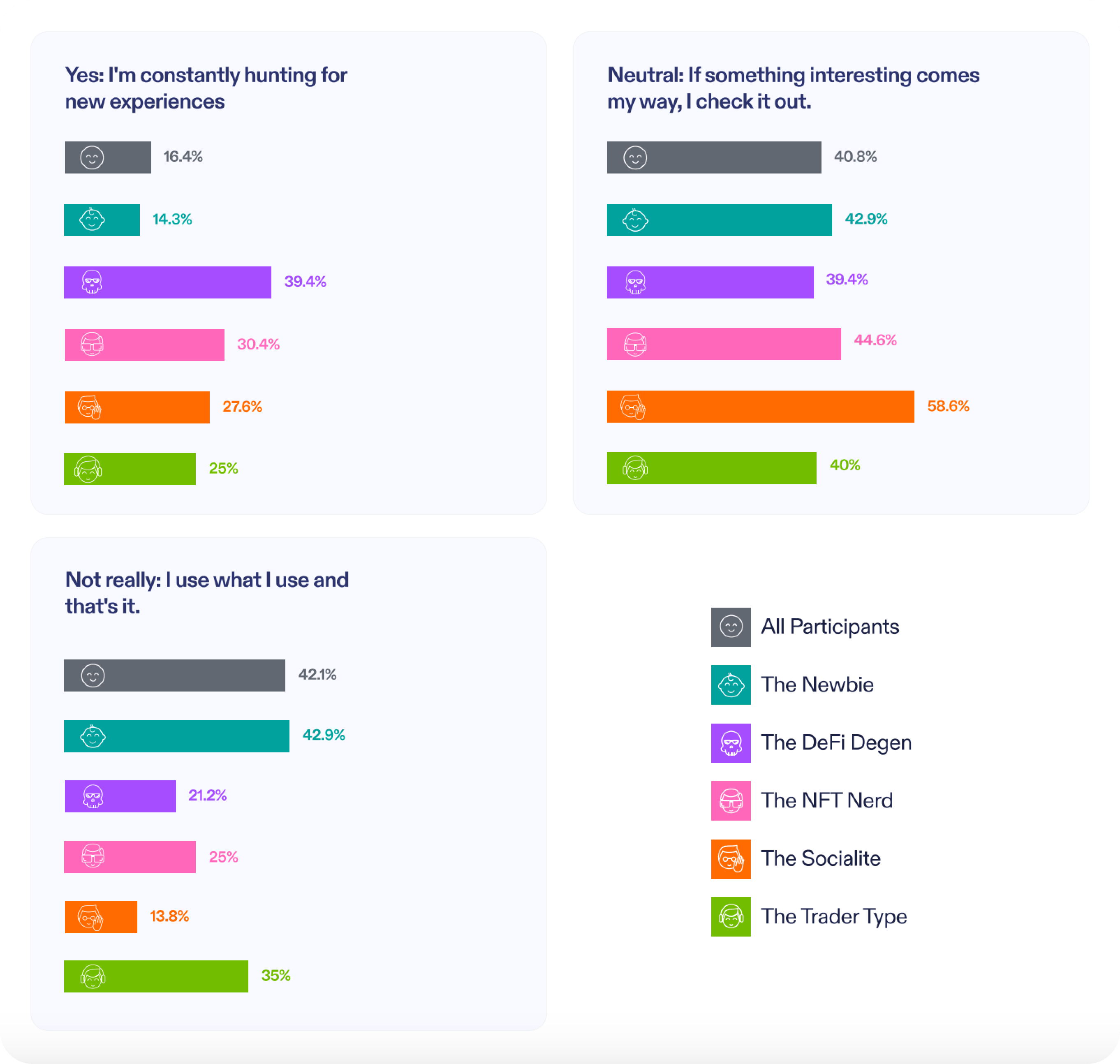
There seems to be an exciting opportunity for developers to enhance offerings to capture the interest of this enthusiastic user segment.
According to Peter Pan of 1kx, web3’s evolution isn’t just a technological shift but a transformative era fueled by a desire for shared and immersive experiences. He envisions a landscape where creation, participation, ownership, and sharing thrive in the growing web3 realm. "Technology alone doesn’t signal a paradigm shift; it’s what people do with it that demonstrates real, multi-dimensional value."
The web3 security paradox
A standout finding in the survey was user behaviors when looking at web3 security – and the unfolding paradox.
- Despite an expectation for robust security from dapps and wallets, only 27% regularly adopted practical security features, like 2FA, while 6% acknowledged neglecting to add them entirely.
- Over 70% of respondents said they’ve never lost crypto due to phishing and hacks.
- 50% of respondents expressed strong confidence in using crypto products and services, it comes as no surprise that nearly 40% of newcomers cited security as their primary concern.
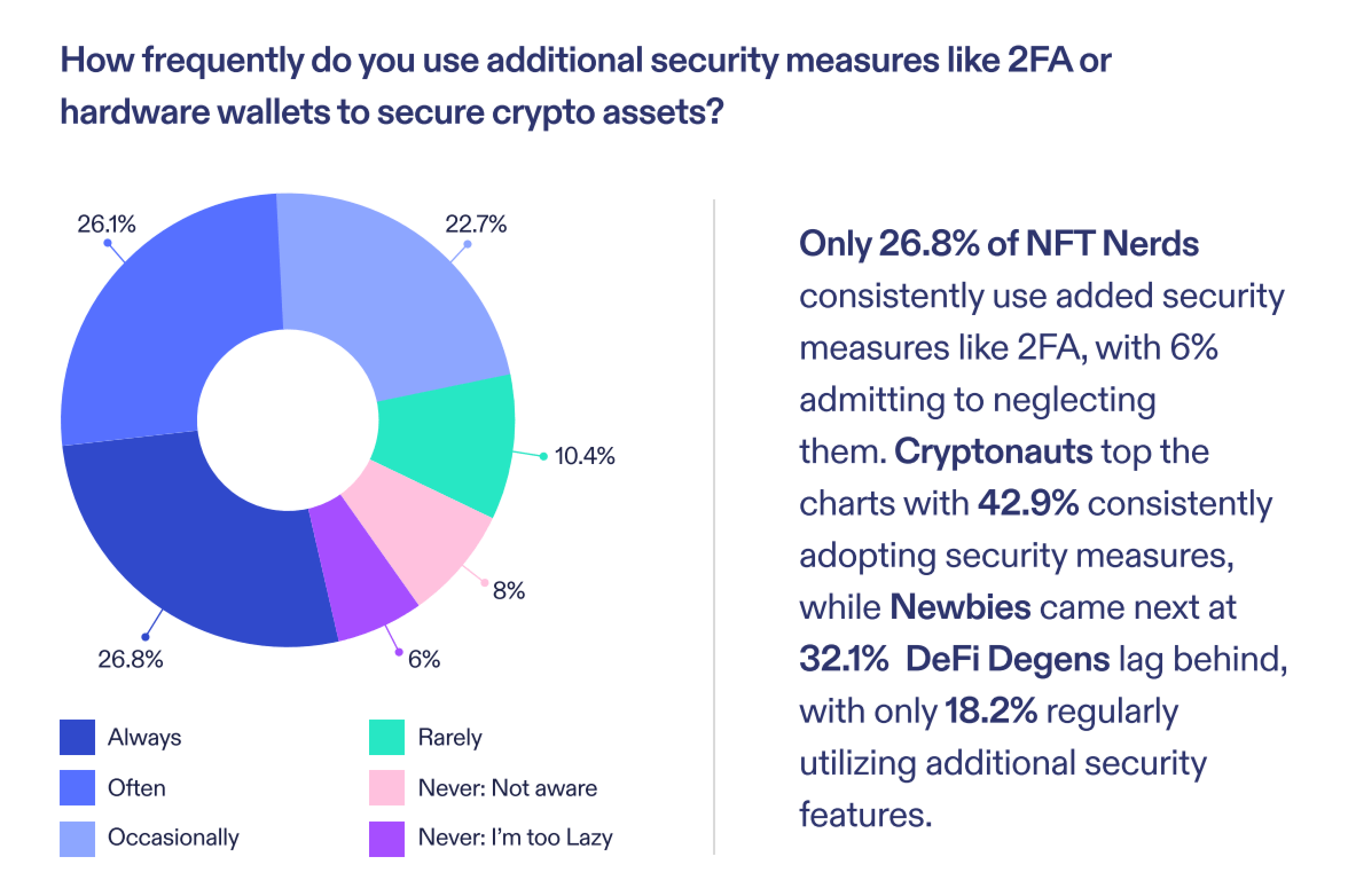
Ledger's Ian Rogers focuses on the importance of users safeguarding their private keys. The industry grapples with the dichotomy between achieving self-custody and compromising on security for widespread adoption. In navigating this delicate balance between usability and security, Ian advocates for a trajectory toward genuine online sovereignty, making the case that, "without decentralization, we cannot have security."
WalletConnect’s Derek Rein highlights the pressing need to fortify the crypto ecosystem against scams and enhance overall user security, suggesting key innovations like scam list adoption, message, and transaction simulation, session key implementation, and streamlined account management."Today, setting up crypto accounts requires safely storing seed phrases and account recovery is complex. Going forward, I think setting these profiles up will be easy and fun."
Lifting the fog
Aside from helping paint a more vivid picture of current crypto consumers and their habits, this report also unearths the evolving nature of crypto engagement itself based on consumer expectations. As web3 builders, we believe this perspective has been lacking for too long and that’s why we wanted to make consumer insights more widespread by launching The WalletConnect Pulse.
We are thrilled to see enthusiasm and optimism within the crypto community again, and hope to help bridge the gap between potential and adoption through data and a better understanding of who we are building for.
Still yet to read the full report? Download it for free here.


